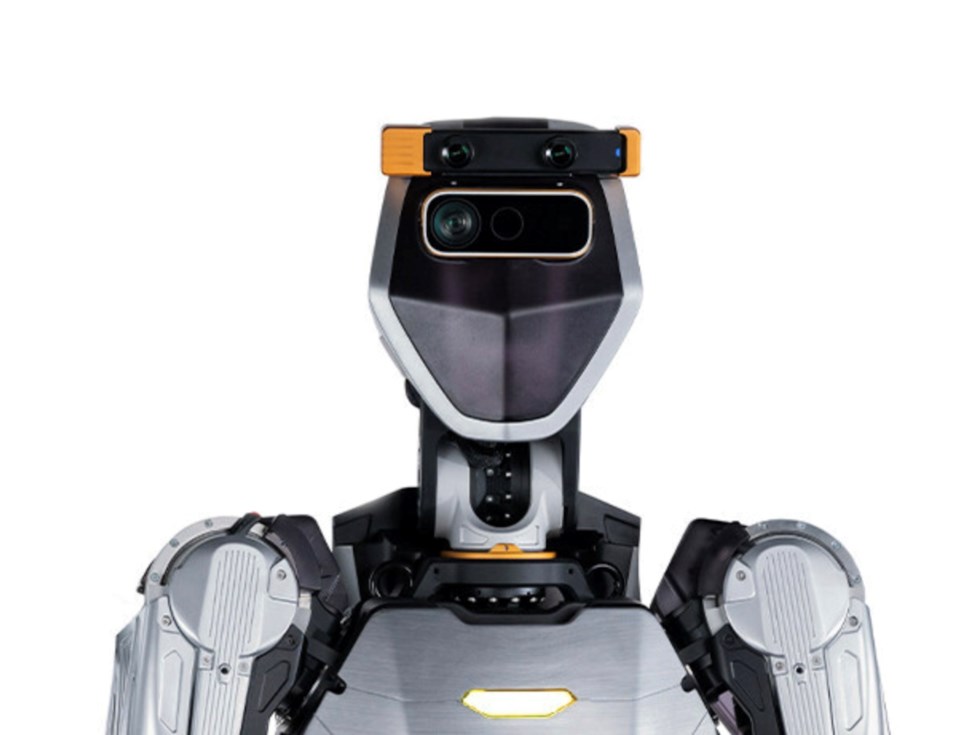Less than a month after landing an undisclosed amount of funding from Accenture, Vancouver's Sanctuary AI has revealed the seventh generation of its Phoenix humanoid robots.
This also comes less than a year after the company released its sixth generation Phoenix robot, which was named one of Time's best inventions of 2023 and helped Sanctuary AI be named one of the top 15 start-ups in Canada by LinkedIn.
It is also less than 16 months after the company commercially deployed its fifth generation Phoenix robot through a partnership with Canadian Tire Corp. (TSX:CTC.A) for use in its Mark's retail chain.
"It's incredible to see the progress that has been made in just 11 months," said Sanctuary AI CEO and co-founder Geordie Rose.
"With Generation 7, we have a system that we believe is the most closely analogous to a person of any available. We see this as not only the cornerstone of general-purpose AI robotics, but a critical step on the path to artificial general intelligence, and we're thrilled to be leading the charge on it."
He added that the new robots are sophisticated at capturing data for a control system that Sanctuary AI calls Carbon.
Upgrades in the new robots include:
• being able to be used for longer time periods;
• being able to be manufactured faster;
• lower priced component parts, lowering manufacturing costs;
• hardware improvements that increase the range of motion in wrists, hands, elbows;
• increased hand durability;
• smaller hydraulics, which reduces weight and power consumption;
• better visual acuity and tactile sensing, leading to better data to train the AI control system; and
• being quicker at being able to automate new tasks.
Excitement in the humanoid robot niche is growing.
Vancouver entrepreneur Roger Hardy told BIV last month that he had invested in the humanoid robot venture Figure AI. That start-up has many ultra-rich technology investors.
“I put over US$3 million into this deal,” Hardy said.
Bloomberg first reported that Amazon.com founder Jeff Bezos and large technology companies, such as Nvidia (Nasdaq:NVDA), had pumped approximately US$675 million into Figure AI in a funding round that valued the company at about US$2 billion.
Others financing Figure AI include ChatGPT-maker OpenAI, its main investor, Microsoft Corp. (Nasdaq:MSFT), LG Innotek, Parkway Venture Capital and Align Ventures.
Other technology titans, such as Tesla Inc. (Nasdaq:TSLA) co-founder and CEO Elon Musk, have been developing humanoid robots. Tesla has what it calls its Tesla Optimus lab, which is developing robots named Optimus.
“What we’re aiming for is for the humanoid robots to do jobs that people don’t voluntarily want to do,” Musk told Massachusetts Institute of Technology research scientist Lex Fridman in a podcast in 2021.
“If it’s dangerous, boring or has potential for repetitive stress injuries – that kind of thing – then that’s really where humanoid robots would add the most value."
Sanctuary AI nabbed $30 million from the Canadian governmen's Strategic innovation Fund in November 2022. It had closed a Series A funding round worth $75.5 million earlier in 2022.
The drive to create humanoid robots follows the trend of simply having robots that reduce the need for human labour.
Diners at Richmond’s Happy Lamb Hot Pot restaurant, for example, have long been able to lift their meals from a non-humanoid robot and place them on their table. The robot tends to wait about 10 seconds before its sensor determines that it is time to return to the kitchen.
Happy Lamb Hot Pot in mid-2021 became the first restaurant in the province to start using GreenCo Robots machines. Dozens of other B.C. restaurants then followed suit, GreenCo’s owner Liang Yu told BIV in 2022.



